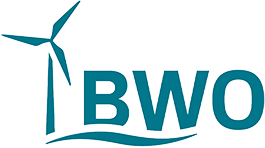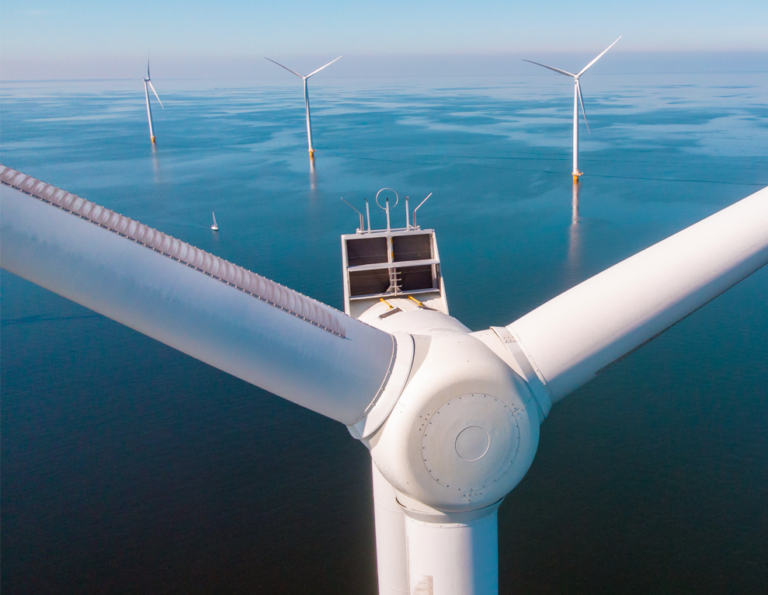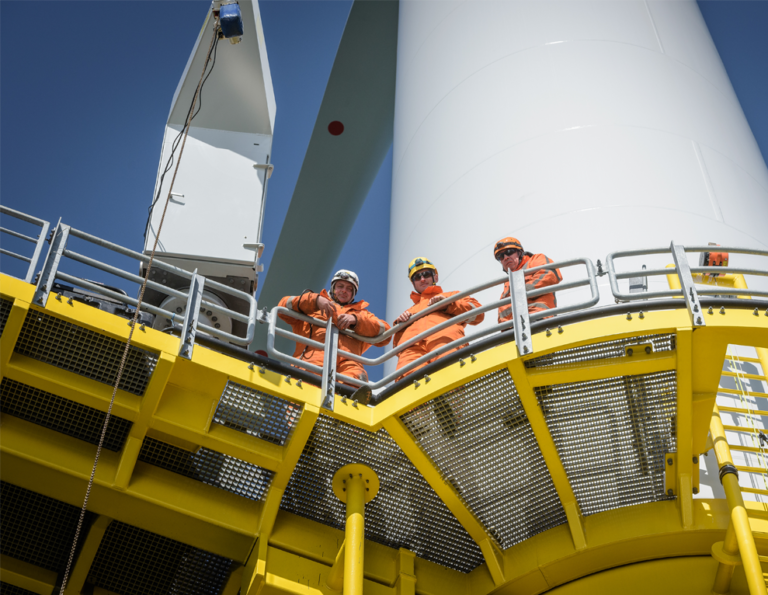Joint press release: Expansion of offshore wind energy in 2023 – project implementation must be the focus!
Berlin, Bremerhaven, Frankfurt, Hamburg, Rostock, January 30, 2024 - The industry associations of the German offshore wind industry and the non-profit OFFSHORE-WINDENERGIE foundation today presented the expansion figures for the full year 2023. The figures prepared by the consulting company Deutsche WindGuard show that in 2023 as a whole, a total of 27 systems with an output of 257 megawatts (MW) fed into the electricity grid for the first time in Germany and 74 new foundations were built. In total, there are currently 29 offshore wind projects in operation in Germany with an installed capacity of 8.465 MW or 1.566 systems. Three other projects are under construction. Two of them with a planned total output of 718 MW are scheduled to be put into operation this year.
- Download: PM Expansion of offshore wind energy 2023 – Project implementation must come back into focusKen! (PDF)
- Press information: Expansion of offshore wind energy 2023 – The focus must be on project realization! (PDF)
Factsheet status of offshore wind energy expansion in Germany 2023
to download:
- Factsheet status of offshore wind energy expansion in Germany 2023 (PDF)
- Factsheet Status of Offshore Wind Energy development in Germany 2023 (PDF)
“It is encouraging that offshore wind expansion is slowly picking up speed again. At the same time, it is clear that offshore wind turbines with an additional output of 7 GW will have to be put into operation in the next 21,5 years in order to achieve the political expansion target of at least 30 GW of wind energy at sea by the end of 2030. This corresponds to an average of 3,1 GW per year. But political expansion goals alone do not create a basis for industrial policy implementation. Therefore, project implementation must now come into focus. In order to cope with this significant amount of upcoming expansion, the offshore wind value chain needs industrial policy measures - for example in the area of the provision of financing instruments - and a regulatory framework that enables the necessary investments. The political goals must become reliable surcharges and investment decisions,” said the industry organizations BWE, BWO, OFFSHORE-WINDENERGIE Foundation, VDMA Power Systems, WAB eV and WindEnergy Network eV, commenting on the further expansion.
Adjustment of the offshore wind energy law necessary
The industry is committed to adapting the Offshore Wind Energy Act (WindSeeG) for both types of tenders as quickly as possible. The aim is to remove hurdles to project implementation and strengthen the offshore wind industry in Germany and Europe. “By signing the Wind Energy Charter in December 2023, the federal government sent a strong signal that it supports the EU Commission’s “Wind Power Package” and will implement the proposed industrial policy measures. It is making a clear commitment to inflation adjustment and qualitative criteria - both in the prequalification and award phases - and is taking a stand against uncapped, purely quantitative bids. Therefore, the tender design must be changed immediately.
For the WindSeeG this means: The current structure of bid payments and
components creates significant financial pressure on the supply chain and on future electricity prices, particularly for industry. This is not in line with the political goal of project implementation and the lowest possible electricity generation costs for German industry. Bid payments should therefore be capped. It is also important to set transparency and clear boundaries in the bidding process, which preserve the diversity of actors in the German offshore wind sector and do not unnecessarily endanger the actual realization of the project.
The qualitative criteria – such as the trainee quota and the share of renewable energy in plant production – need to be adjusted because they are unclear in their current form and create hurdles for the offshore wind industry. Qualitative criteria should, if possible, be harmonized across Europe in order to ensure economies of scale.
The federal government must work to ensure that the EU Net Zero Industry Act provides a binding framework for a level playing field and technological resilience. For the competitive balance in the wind industry, it is essential that binding and non-discriminatory as well as uniform and easily verifiable prequalification criteria (e.g. in the area of cyber security) are anchored across Europe. In addition, clarity must be created as quickly as possible about offshore electrolysis projects as part of the SEN-1 tender and beyond,” industry representatives agree.
Expansion of port infrastructure and construction capacities
A focused financing strategy from the federal, state and EU for the value chain,
For example, with regard to the port and construction infrastructure, it is necessary to cover contract risks and at the same time enable investment security. Investment decisions must be made as quickly as possible to create additional capacities in the seaport area in Germany, such as logistics centers, heavy-duty storage areas and quayside facilities at manufacturers and seaports as well as hinterland connections. This also applies to ships for the transport and construction as well as the subsequent operation of the offshore wind turbines. We are heading towards a significant bottleneck here if expansion continues to pick up.
Among the clients of the half-yearly expansion statistics for offshore wind energy:
About the Federal Wind Energy Association (BWE)
The Federal Wind Energy Association (BWE) is a partner of over 3.000 companies in the wind energy industry and represents the interests of its around 20.000 members. The BWE thus concentrates the entire know-how of the diverse industry.
About the Federal Association of Offshore Wind Energy eV (BWO)
The purpose of the BWO is to represent the political interests of the offshore wind industry in Germany. The BWO is the central contact for politicians and authorities at federal and state level on all questions relating to offshore wind energy.
About the OFFSHORE WIND ENERGY foundation
The non-profit foundation OFFSHORE-WINDENERGIE has been a non-partisan, supra-regional and cross-sector think tank for the development of offshore wind energy in Germany and Europe since 2005. It is a communication platform for actors from politics, business and research, serves to exchange knowledge and sees itself as a source of ideas and multiplier.
About VDMA Power Systems
The VDMA Power Systems trade association and its working groups represent manufacturers and suppliers of electricity and heat generation systems.
About WAB eV
The WAB is the nationwide contact for the offshore wind industry, the onshore network in the northwest and promotes the production of “green” hydrogen from wind power. The industry association includes around 250 smaller and larger companies as well as institutes from all areas of the wind industry, the maritime industry, the emerging hydrogen economy and research.
About WindEnergy Network eV (WEN)
The WEN is the leading business network for wind energy in the northeast region with currently around 100 member companies. The aim is to expand the industrial base and regional value creation in the future sector of renewable energies. Thematic focus is on wind energy on land and at sea, maritime technologies in connection with offshore wind and the development of green hydrogen.



